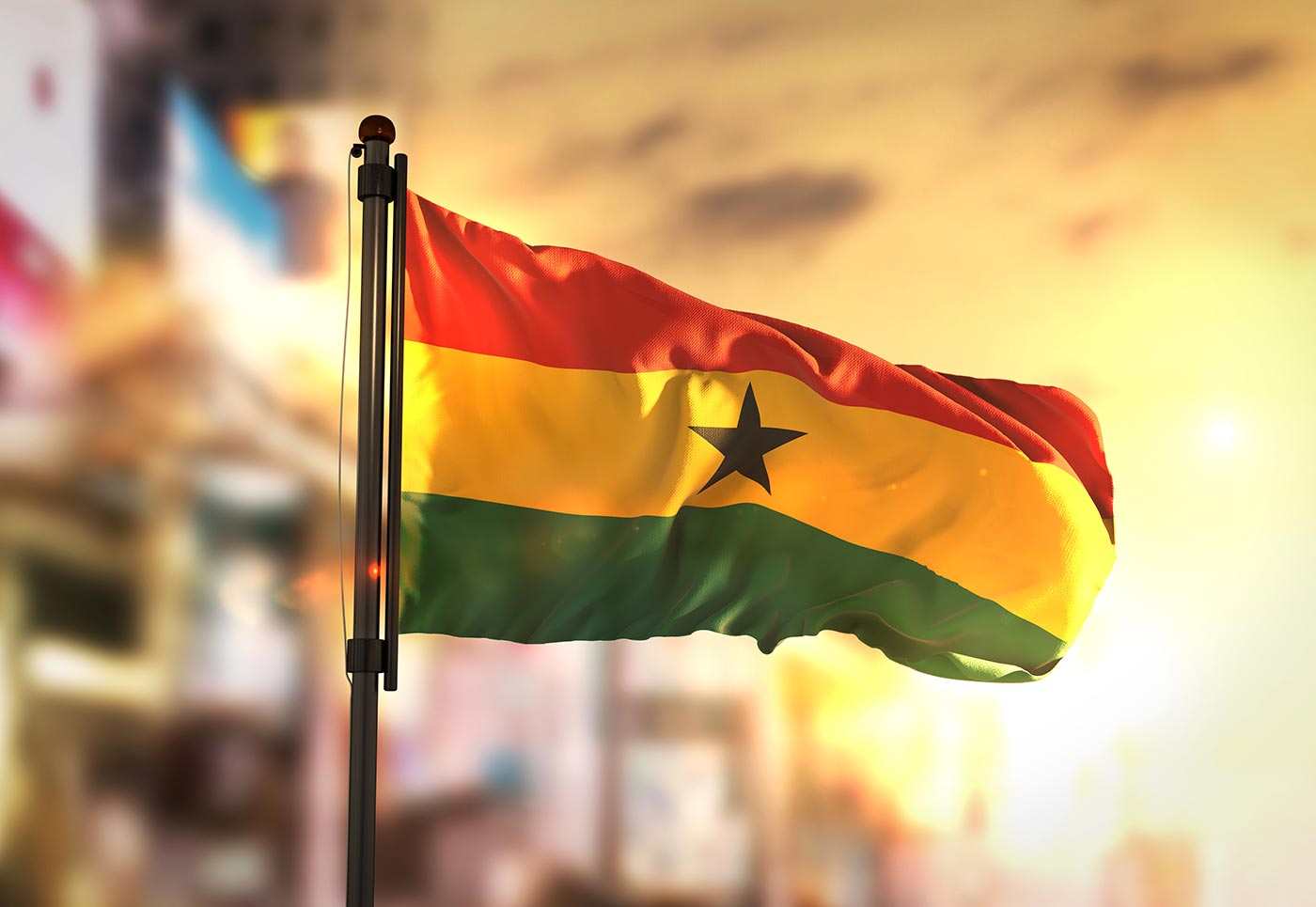
8 things you didn’t know about Ghana
The amazing ecosystems of the Atiwa rainforest, a super tropical climate, tasty jollof rice, haunting “slave castles” and the largest artificial reservoir in the world by surface area. There are many things we all know about Ghana.
But did you know we’ve also recently launched fast deliveries there?
To celebrate, we’ve uncovered a whole host of fascinating facts hidden just beneath the surface of this incredible West African country. Here are our favourite lesser known facts about Ghana.
Ghana has an immense amount of gold and diamonds
Let’s start with the bling! Ghana is home to a wealth of gold and diamonds. It’s the 6th biggest gold producing country in the world and the largest in Africa, producing 138.7 tonnes of gold in 2020 and stealing the crown from South Africa.
In terms of money, we’re talking billions—in 2016 alone, Ghana exported $2.39 billion of gold. And according to the OEC, gold makes up 49% of all exports coming out of Ghana.
Now that’s some serious shine.
Ghana has many weird and wonderful superstitions
And our favourite are:
- Many Ghanaians believe you should never clip your nails at night. This is because the spirits may take them overnight to use them to enact acts of evil against you.
- There’s a town called Paga in northern Ghana, bordering Burkina Faso. In Paga, there’s a sacred pond filled with crocodiles, who—according to folklore—hold the souls of the dead inhabitants of the town.
- It’s often believed, in Ghana, that if you get into a coffin and remain sealed in there for a week, your luck will change and you’ll get rich once you’re out.
- It’s said in Ghana that there’s a forest, inhabited by dwarves whose feet point backwards. If you venture into the forest at night, the dwarves will kidnap you and keep you there for months.
Ghana is home to a community of pink chickens
The people of Shai Hills spray their chickens pink to stop baboons from attacking them. The monkeys are known for stealing personal items and food, but the biggest pain for local farmers is the attack on their chickens.
So, naturally, they decided to spray them neon pink—and the baboons kept their distance!
The sea goddess of Ghana says no to music
In the lead up to the harvest festival Homowo, the coastal communities of Ghana keep noise to a minimum—and music is even banned altogether. That’s because the Ga people believe that Maame Water, the deity of the oceans, demands peace and quiet. To go against this could bring bad luck to the Ga community.
Kokrobite and Accra, usually social hubs, find their stereos switched off and everything gets very quiet.
Ghana gained independence in 1957
In 1957, Ghana became the first black African country to gain independence from British colonial rule—a moment of great celebration for the country. Kwame Nkrumah, having led the fight for freedom, became Ghana’s first Prime Minister and President—and, then, a founding member of the Organization of African Unity. He later received the Lenin Peace Prize in 1962 from the Soviet Union.
Each year on 21st September—Nkrumah’s birthday—Ghana celebrates him with the Kwame Nkrumah Memorial Day. Visitors to Ghana can go to the Kwame Nkrumah Memorial Park & Mausoleum in the centre of Ghana’s capital, Accra.
The flag of Ghana is symbolic
There’s a whole lot of symbolism behind the multicoloured Ghanaian flag. It’s a horizontal tricolour of red, white and green, with a black star in the middle. Here’s what it all means:
Red—This represents Ghana’s fight for independence.
Yellow—This symbolises Ghana’s wealth.
Green—The many beautiful forests and farms of Ghana.
The black star—This is the black star of Africa, and the lodestar for Africa’s freedom from colonialism.
Ghana is the seat of the Ashanti empire
The Ashanti, or Asante, empire was an Akan kingdom from 1701 to 1957 (when the Gold Coast gained independence and became Ghana). It spanned what is now Ghana, Ivory Coast and Togo. The capital of the independent Asante state was the city of Kumasi, around which most Asante lived, and still live, producing crops like plantain, cassava and yams for local markets.
The Asante Empire enjoyed international renown and was studied in depth by the British. The kingdom still survives today, but as a sub-national proto-state.
Ghana is the world’s second-largest cocoa producer
Gold isn’t the only produce that Ghana’s good for—cocoa is a major export for Ghana. And they’re the second largest producer of cocoa in the world, just after neighbouring Côte d’Ivoire, which takes first position.
According to the Food and Agriculture Organization of the United Nations, Ghana produced an immense 811,700 tonnes of cocoa beans between 2018 and 2019 alone.
They run the fastest… backwards
The record for the fastest ever backwards run was set by a Ghanaian man. On 25th July 1991 at the Smith College, Massachusetts, Ferdie Ato Adoboe ran 100 metres backwards in just 12.7 seconds.
We reckon backwards running should become an Olympic sport. Go Ferdie!
______________
Do you have some fun facts of your own about Ghana? Share them with us on Instagram. We’ll reshare our favourites! Don’t forget to tag us at @transfergo.
And if you want to send money, sign up now for easy online money transfers with TransferGo.
Popular articles
Invite friends to TransferGo, earn £20










































































































































































